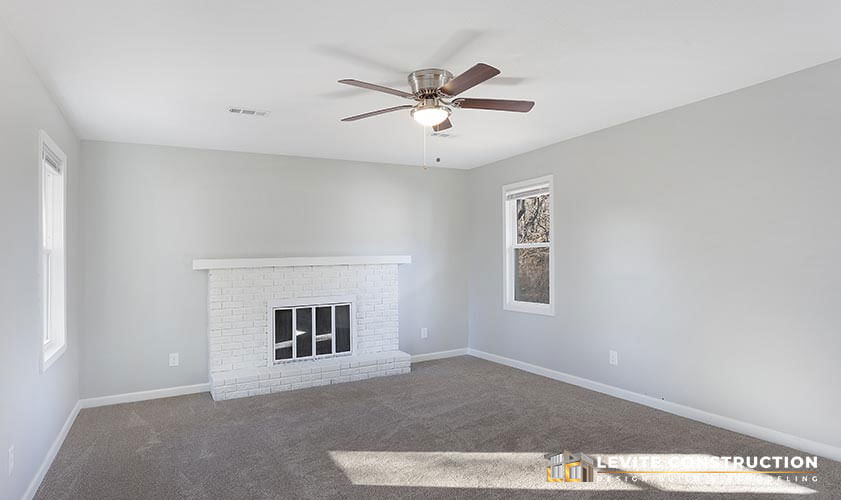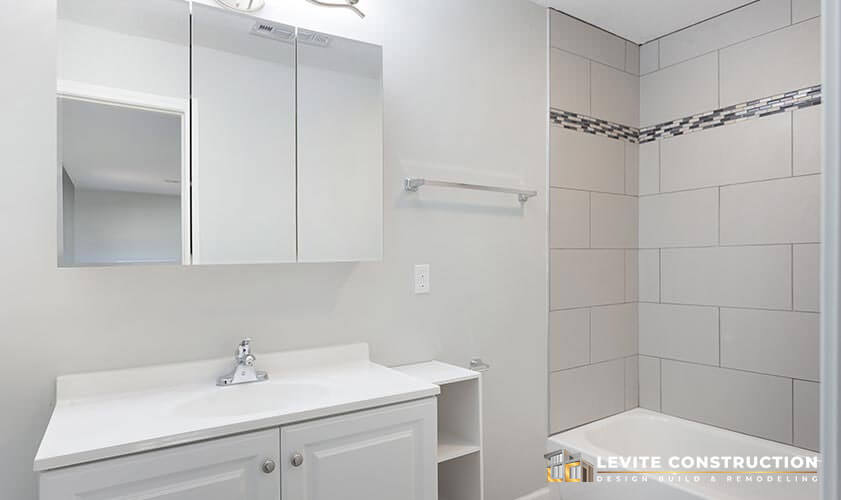If you are looking to add more living space to your property, an Accessory Dwelling Unit (ADU) could be the perfect solution. ADUs are self-contained living spaces that can be built on the same lot as your primary home. They offer a range of benefits, from providing extra space for your family to generating rental income. However, ADU construction can be complex, involving zoning requirements, building codes, and financing options. In this article, we’ll walk you through everything you need to know about building an ADU, from initial design to legal considerations, and help you navigate the process with confidence.

1. Understanding ADUs: What They Are and Why They Are Useful
What is an ADU?
An Accessory Dwelling Unit (ADU) is a self-contained, secondary housing unit that can be built on the same lot as an existing single-family home. ADUs can come in a variety of forms and sizes. Common types of ADUs include backyard cottages, basement apartments, garage conversions, and even tiny houses.
Advantages of Building an ADU
ADUs offer several advantages to homeowners who are looking to expand their living space. For one, they provide an opportunity for multi-generational living, allowing families to accommodate aging parents or adult children who need a place to stay. ADUs can also generate rental income, providing homeowners with an extra source of cash.
Another advantage of ADUs is their flexibility. They can be used as a home office, art or music studio, or as a guest suite for out-of-town visitors. Plus, they can increase the overall resale value of a home.
2. Legal Considerations: Navigating Zoning, Building Codes, and Permits
Understanding Zoning and Building Codes
Before building an ADU, it’s important to understand the zoning and building codes in your area. Many cities and towns have specific regulations regarding the construction of ADUs, including size limitations, setback requirements, and even design guidelines. It’s important to work with a contractor who is familiar with local building codes to ensure your project is up to code.
Permits and Approvals Needed for ADU Construction
In addition to adhering to building codes and zoning regulations, homeowners must obtain the necessary permits and approvals before beginning construction on an ADU. This typically includes obtaining a building permit, as well as any necessary permits for electrical, plumbing, and mechanical work.
3. Designing Your ADU: Tips for Maximizing Space and Functionality

Choosing the Right ADU Design for Your Needs
When designing an ADU, it’s important to consider your specific needs and how you plan to use the space. For example, if you plan to use the ADU as a rental unit, you may want to consider investing in a larger unit with a separate entrance and kitchen.
Space-Saving Tips and Tricks
To make the most of limited space in an ADU, it’s important to incorporate space-saving design elements. This can include built-in storage solutions, such as shelves and cabinets, as well as folding or multi-functional furniture. Additionally, utilizing natural light and incorporating an open floor plan can make a small space feel more spacious and airy.
4. Building Your ADU: Choosing the Right Contractor and Materials
Choosing the Right Contractor for Your ADU Project
Choosing the right contractor is critical when building an ADU. It’s important to work with a contractor who is experienced in building ADUs, and who can guide you through the process of obtaining necessary permits and meeting building codes. Additionally, homeowners should ask for references and review the contractor’s portfolio before making a hiring decision.
Materials and Building Techniques for ADUs
When it comes to building materials and techniques for ADUs, it’s important to focus on durability, energy efficiency, and cost-effectiveness. Many homeowners opt for prefabricated or modular ADUs, which can be built quickly and are often less expensive than traditional construction. Additionally, employing sustainable practices, such as using energy-efficient appliances and installing solar panels, can help reduce the environmental impact of an ADU.
5. Financing Your ADU: Options for Covering the Cost of Construction
Are you considering building an ADU but unsure how to finance it? The cost of constructing an ADU can vary greatly, depending on factors such as its size, location, and level of customization. However, there are several financing options that can help you cover the cost, including:
Cost of Building an ADU
Before exploring financing options, it’s important to have a clear understanding of the cost of building an ADU. On average, the cost can range from $50,000 to $150,000, with additional costs for permits, design, and site preparation. However, in some cases, homeowners may be able to finance the ADU through a mortgage or personal loan.
Financing Options for Building an ADU
Here are some financing options to consider:
- Home Equity Loan: This type of loan allows you to borrow against the equity in your home, using it as collateral. This can be a good option if you have a significant amount of equity built up in your home.
- Personal Loan: A personal loan is a type of unsecured loan that can be used for a variety of purposes, including home renovations. This may be a good option if you don’t have enough equity in your home for a home equity loan.
- Construction Loan: A construction loan is a short-term loan that provides funding for the construction of a new home or renovation project. This may be a good option if you plan to build the ADU from scratch.
- Government Grants: Some local governments offer grants to homeowners who build ADUs. These grants can help cover the cost of construction and may come with restrictions on renting out the ADU.
6. Renting Out Your ADU: Strategies for Finding and Managing Tenants
Once your ADU is built, renting it out can provide a steady source of income. However, finding and managing tenants can be a challenge.
Here are some strategies for renting out your ADU:

Preparing Your ADU for Renting
Before you start looking for tenants, it’s important to prepare your ADU for renting. This may include making repairs, cleaning, and staging the space. Consider hiring a professional cleaner and staging company to make your ADU more attractive to potential tenants.
Marketing Your ADU: Finding the Right Tenants
To find the right tenants, consider listing your ADU on popular rental websites such as Airbnb or VRBO. You can also advertise locally through community bulletin boards and social media. When screening potential tenants, be sure to ask for references and conduct a background check to ensure they are trustworthy.
7. ADU Maintenance: Keeping Your Space in Top Condition
To ensure your ADU stays in top condition, it’s important to schedule regular maintenance. Here are some maintenance tasks to keep in mind:
Maintaining Your ADU’s Systems and Appliances
Regularly inspect and maintain your ADU’s systems and appliances, including heating and cooling systems, water heaters, and kitchen appliances. Be sure to change filters and perform routine maintenance tasks as recommended by the manufacturer.
Keeping Your ADU Safe and Secure
To keep your ADU safe and secure, install smoke detectors and carbon monoxide detectors, and ensure all locks are secure. You may also want to install security cameras and motion sensor lighting to deter burglars.
8. The Future of ADUs: Trends, Innovations, and Opportunities
As the popularity of ADUs grows, so do the trends, innovations, and opportunities. Here’s what to expect:
New Innovations in ADU Design and Technology
As technology continues to evolve, so do the design and features of ADUs. Expect to see more eco-friendly features such as solar panels and energy-efficient appliances, as well as smart home technology that allows for remote control of temperature and lighting.
The Future of ADUs and Their Impact on Real Estate
ADUs are becoming increasingly popular as a way to provide affordable housing and increase property values. As more homeowners build ADUs, it’s likely that they will have a positive impact on real estate prices and provide additional housing options for renters.In conclusion, building an ADU is a smart investment that can provide a range of benefits for homeowners. By following the guidelines and tips outlined in this article, you can ensure that your ADU project is a success. With careful planning, smart design choices, and the right team of professionals, you can create a beautiful and functional living space that adds value to your property and meets your unique needs. So why wait? Start exploring your options and take the first step towards extending your home with an ADU today!
FAQ
What is an ADU?
An ADU, or Accessory Dwelling Unit, is a self-contained living space that is built on the same lot as your primary home. ADUs can be attached or detached from the main house and typically include a kitchen, bathroom, and living area.
What are the benefits of building an ADU?
ADUs offer a range of benefits, including providing extra space for your family, generating rental income, and increasing the value of your property. They can also be used as guest houses, home offices, or multi-generational living spaces.
What are the legal requirements for building an ADU?
The legal requirements for building an ADU vary depending on your location. You will need to check with your local zoning and building departments to determine the specific regulations in your area. Generally, you will need to obtain permits and approvals for your ADU construction project and comply with zoning and building codes.
How much does it cost to build an ADU?
The cost of building an ADU varies widely depending on factors such as the size, location, and complexity of the project. On average, you can expect to spend between $80,000 and $250,000 for an ADU. However, there are financing options available that can help make ADU construction more affordable.
Levite Construction Co. General Contractor in Seattle provides a full range of residential and commercial construction services throughout the greater Puget Sound region. Our team of experienced professionals is dedicated to delivering quality results that are on-time and within budget. From large scale office builds to small home remodels, Levite Construction Co. offers design-build construction management that incorporates green building practices and energy conservation principles at every stage of the process.
Give us a call at 425-998-8958, or send us an email at info@leviteconstruction.com



